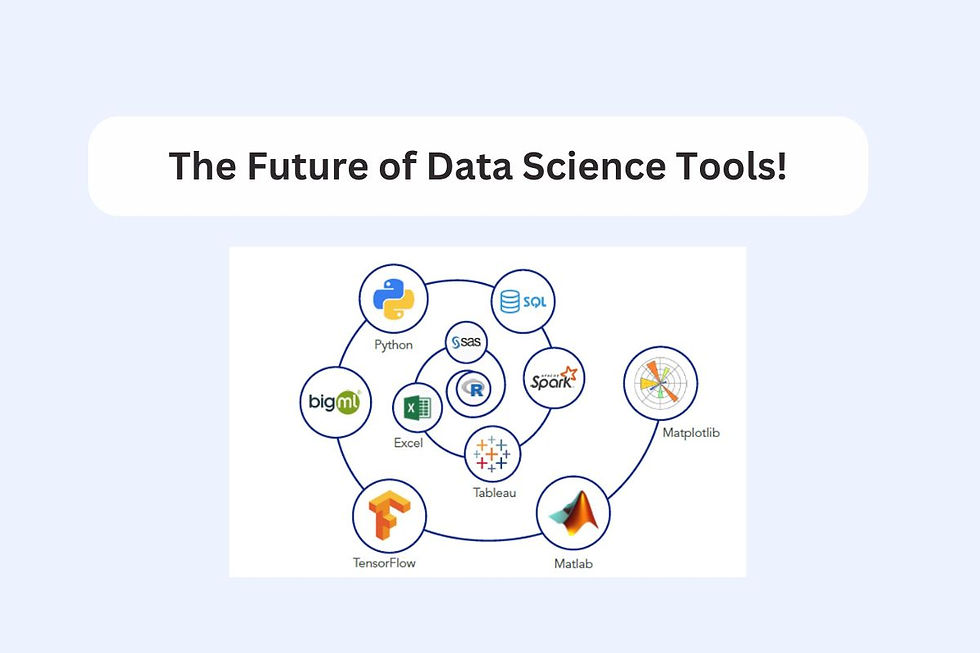10 Common Mistakes to Avoid in Python Database Handling
- archi jain

- Apr 1, 2024
- 3 min read

Python is a versatile and powerful programming language widely used for various applications, including database management. However, while working with databases in Python, developers often encounter challenges and pitfalls that can lead to errors and inefficiencies. In this article, we'll explore 10 common mistakes to avoid in Python database handling to ensure smoother and more effective data management.
1. Ignoring Connection Management:
One of the most common mistakes in Python database handling is failing to manage database connections properly. Opening connections without closing them can lead to resource leaks and degraded performance. Always ensure that you close database connections after use or use context managers to automatically handle connection closure.
2. Not Using Parameterized Queries:
Using string formatting to construct SQL queries leaves your code vulnerable to SQL injection attacks and can lead to unexpected behavior. Instead, use parameterized queries with placeholders to safely pass parameters to your SQL statements, reducing the risk of security vulnerabilities.
3. Overlooking Error Handling:
Failing to implement robust error handling mechanisms can result in silent failures and difficulty in troubleshooting database-related issues. Always use try-except blocks to catch and handle exceptions gracefully, providing informative error messages to aid in debugging.
4. Neglecting Transactions:
Transactions are essential for ensuring data integrity and consistency in database operations. Neglecting to use transactions can leave your database in an inconsistent state, especially when performing multiple operations that depend on each other. Wrap related database operations within a transaction to ensure atomicity and rollback in case of errors.
5. Not Using Database Indexes:
Database indexes play a crucial role in optimizing query performance by facilitating faster data retrieval. Failing to create indexes on columns frequently used in search or join operations can result in slow query execution times. Identify and create appropriate indexes to improve database performance.
6. Mishandling Large Data Sets:
Processing large data sets inefficiently can lead to memory issues and performance bottlenecks in Python database applications. Instead of loading entire data sets into memory at once, consider using streaming or pagination techniques to process data in smaller chunks, minimizing memory usage and improving performance.
7. Inefficient Query Optimization:
Writing inefficient SQL queries can significantly impact database performance, especially when dealing with large datasets. Take advantage of database profiling tools to identify slow queries and optimize them by adding appropriate indexes, restructuring queries, or rewriting them to leverage database features effectively.
8. Lack of Data Validation:
Failing to validate user input and database responses can lead to data integrity issues and security vulnerabilities. Implement robust data validation mechanisms to ensure that input data meets expected criteria before interacting with the database, reducing the risk of data corruption or injection attacks.
9. Not Scaling Database Connections:
As your Python application grows, it's essential to scale database connections to accommodate increased traffic and workload. Using connection pooling libraries or frameworks can help manage database connections efficiently, preventing connection bottlenecks and improving application scalability.
10. Ignoring Database Security:
Security should be a top priority when handling databases in Python applications. Ignoring security best practices, such as using weak passwords, storing sensitive information in plain text, or granting excessive permissions, can expose your database to unauthorized access and data breaches. Implement robust authentication, authorization, and encryption mechanisms to safeguard your database against security threats.
Conclusion
Mastering Python database handling requires diligence, attention to detail, and adherence to best practices. By avoiding the common mistakes outlined in this article and following the recommended strategies, developers can ensure smoother and more efficient data management in their Python applications. Remember to prioritize connection management, utilize parameterized queries, implement robust error handling, and leverage transactions for data integrity. Additionally, optimize query performance with appropriate indexing, handle large data sets efficiently, and prioritize data validation and security. Don't forget to enhance your skills with the Best Python Training in Chandigarh, Delhi, Ghaziabad, and other nearby cities. By addressing these key areas, developers can enhance the reliability, performance, and security of their Python database applications, ultimately delivering better user experiences and maintaining the integrity of their data.



Comments